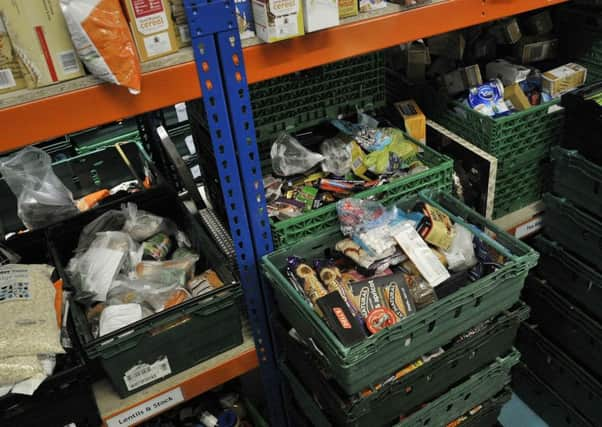Jamie Livingstone: A chance for changes in seat of power


Over the next two weeks or so, the scales of power will tilt from politicians to the people of Scotland as those seeking political power appeal for a five-year mandate to serve in the Scottish Parliament.
The election creates a critical opportunity for voters to influence the country they call home.
Advertisement
Hide AdAdvertisement
Hide AdHowever, across the world, the all too brief shift in power created before elections often evaporates after polling day with a return to power dynamics dominated by the wealthiest, despite increasing global evidence that inequalities of power must be recognised and consistently challenged if we are to build a fairer society for everyone.
In January, Oxfam released a report which shows just 62 people own as much wealth as the poorest half of the world’s population put together: that’s 3.6 billion people.
Oxfam cares about extreme economic inequality because it is a brake on poverty reduction.
Significant progress has been made globally in reducing extreme poverty: in just 15 years, it has been halved and, in 15 more years, we believe we could end it for good.
However, there is still a huge amount of work to do – 800 million people don’t have enough to eat.
In Scotland, too many people are also struggling to feed themselves and their families.
At the same time the richest 20 percent of people hold nearly two-thirds of the country’s private wealth, which at last count was £714 billion.
We don’t believe we can end poverty, at home or abroad, without tackling extreme economic inequality, and the power imbalances which underpin it.
Advertisement
Hide AdAdvertisement
Hide AdIn recent weeks, the world’s media has been dominated by the “Panama Papers”.
The revelations are a powerful, and disturbing, example of how elites both help to create and then exploit the rules of a game at the expense of the rest.
Oxfam has been saying loudly for some time that tax dodging and tax havens take billions of pounds away from essential public services and the world’s most vulnerable people.
In 2014, corporate investment in tax havens was almost four times bigger than it was in 2001.
The UK must show leadership ahead of a major anti-corruption summit which will be taking place in London on May 12th, by doing more to increase transparency and stamp out wrong-doing in UK-linked tax havens.
But as well as taking action to tackle this glaring injustice, addressing inequalities of power requires greater efforts to amplify the voices of those at the other end of the economic spectrum.
Our experience suggests decisions taken without hearing and responding to these voices are rarely as effective as they could be.
In Scotland, official surveys show just 23 percent of people feel they can influence decisions affecting their area. Those in poverty, often branded ‘hard-to-reach’, are simply seldom-heard, with decision-makers insufficiently willing to reach out to them and listen to their ideas and experience.
Advertisement
Hide AdAdvertisement
Hide AdThat’s why Oxfam recently organised events around Scotland to help connect people, particularly those facing disadvantage, with candidates standing for the Scottish Parliament in their region.
Instead of the political back and forth of normal political hustings, people met in small groups with each candidate in turn to get their questions answered much more directly.
We must lock-in such participative approaches beyond the election and ensure the wide-spread political and public support to tackle inequality translates into a new ways of doing politics.
In a paper we published in October, we outlined a series of measures the Scottish Parliament can take to reduce poverty and inequality in Scotland, whilst supporting sustainable development around the world.
We must permanently rebalance the scales of powers in Scotland if we are to end poverty.
• Jamie Livingstone is head of Oxfam Scotland, www.oxfam.org.uk/scotland/blog